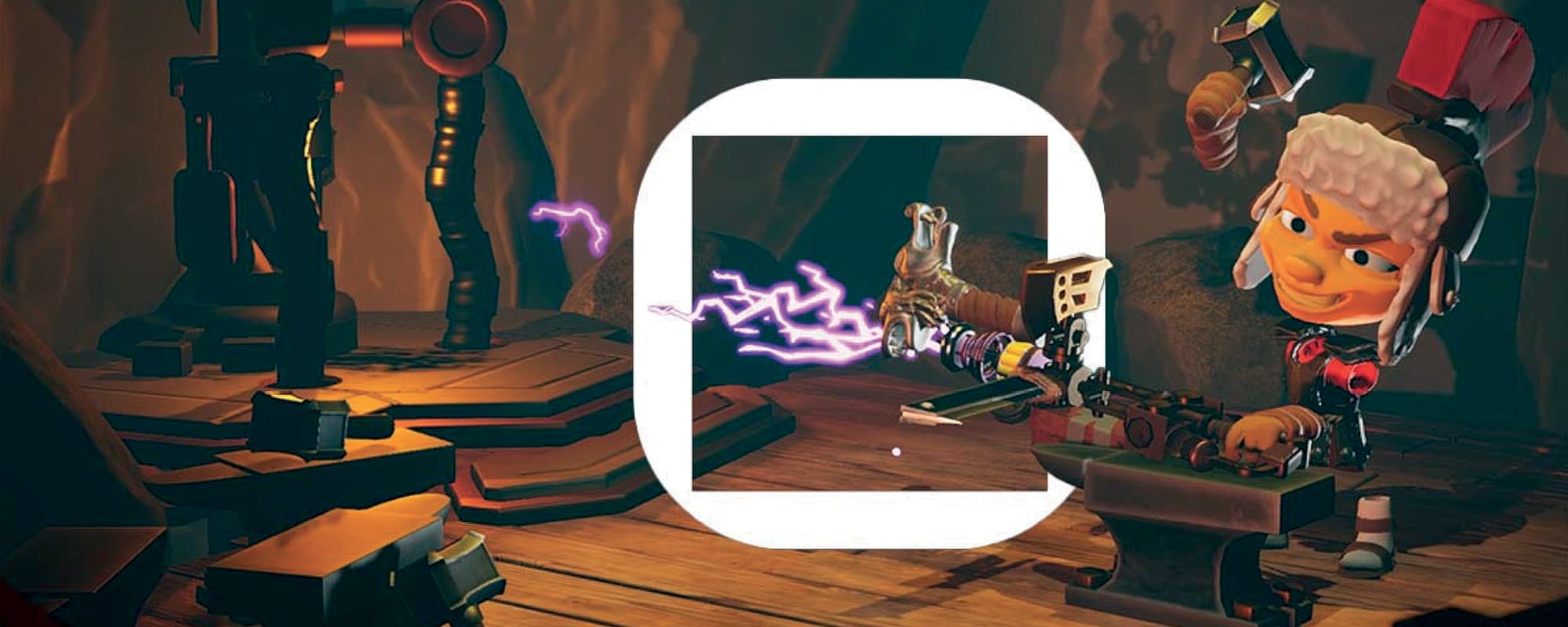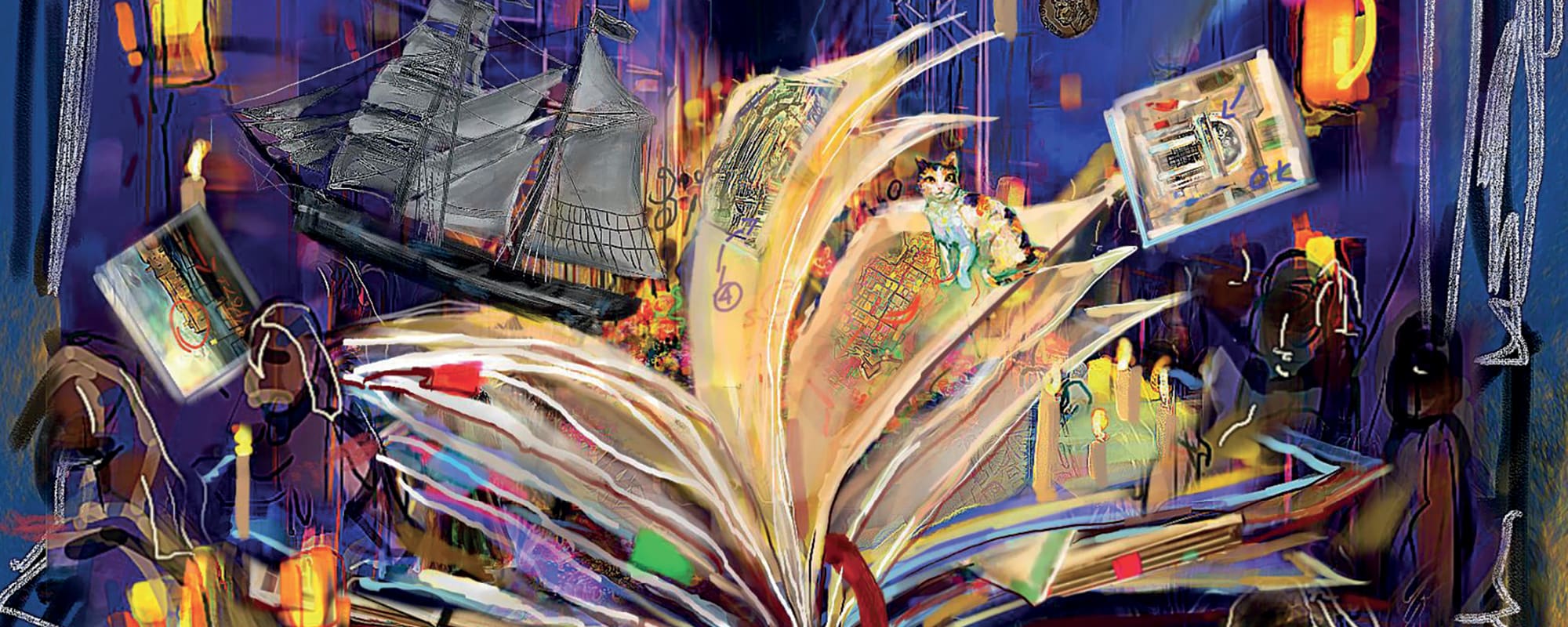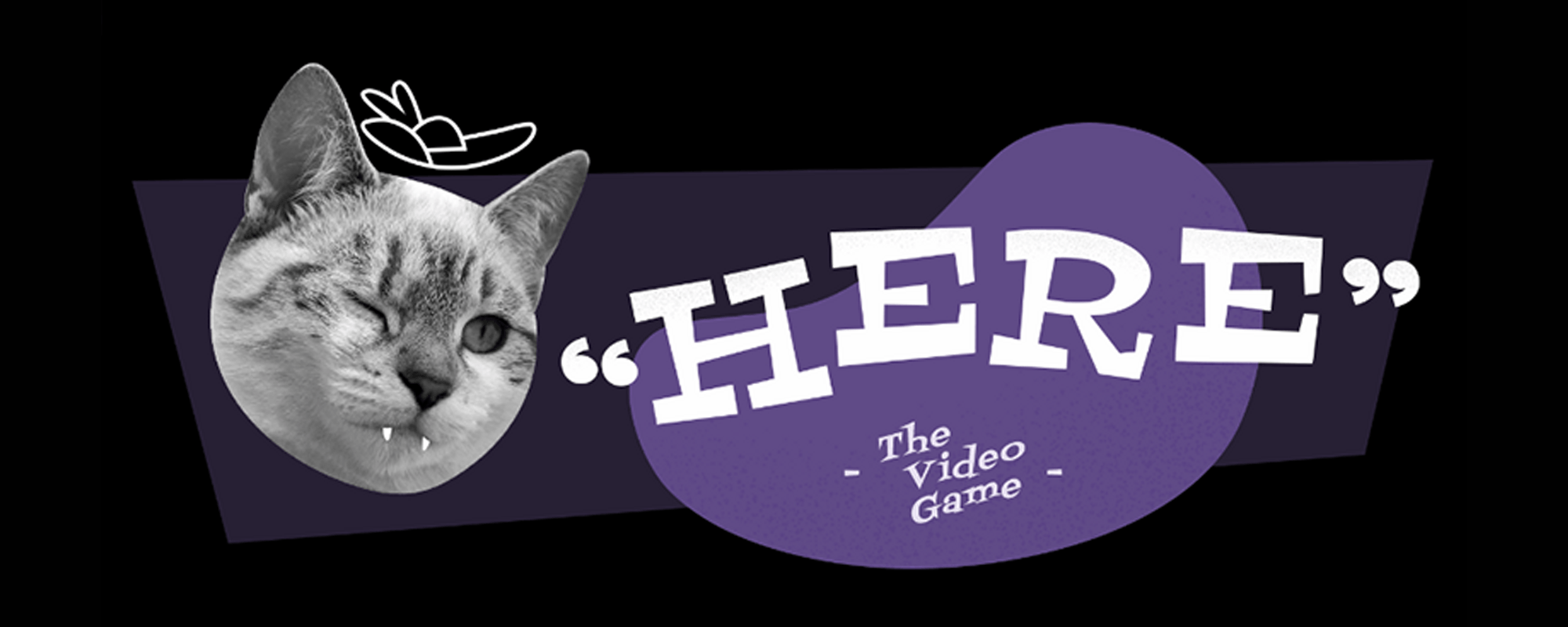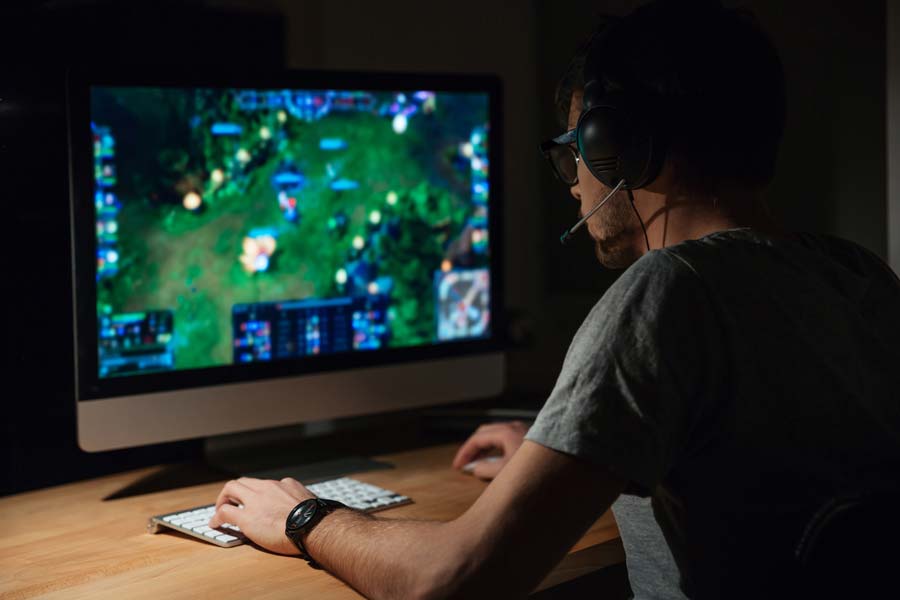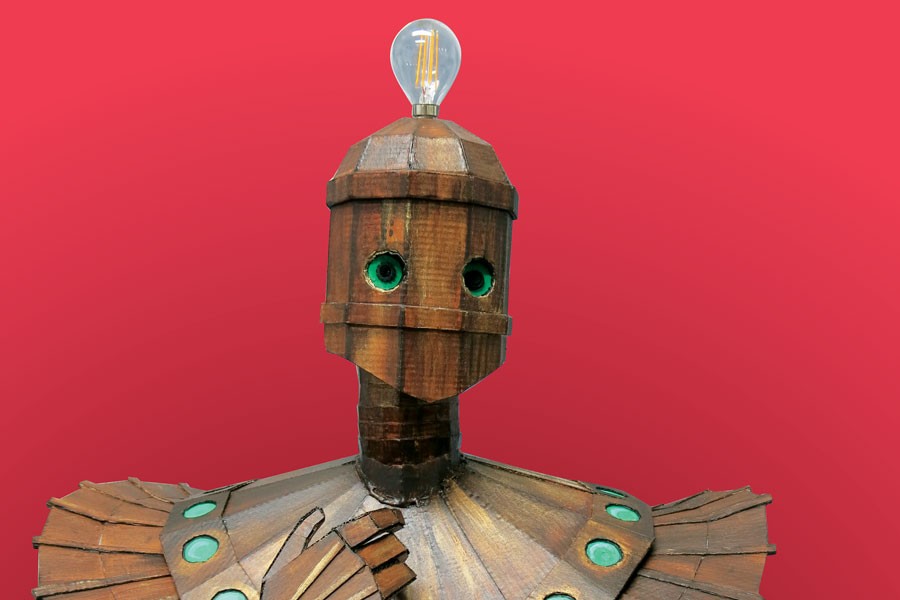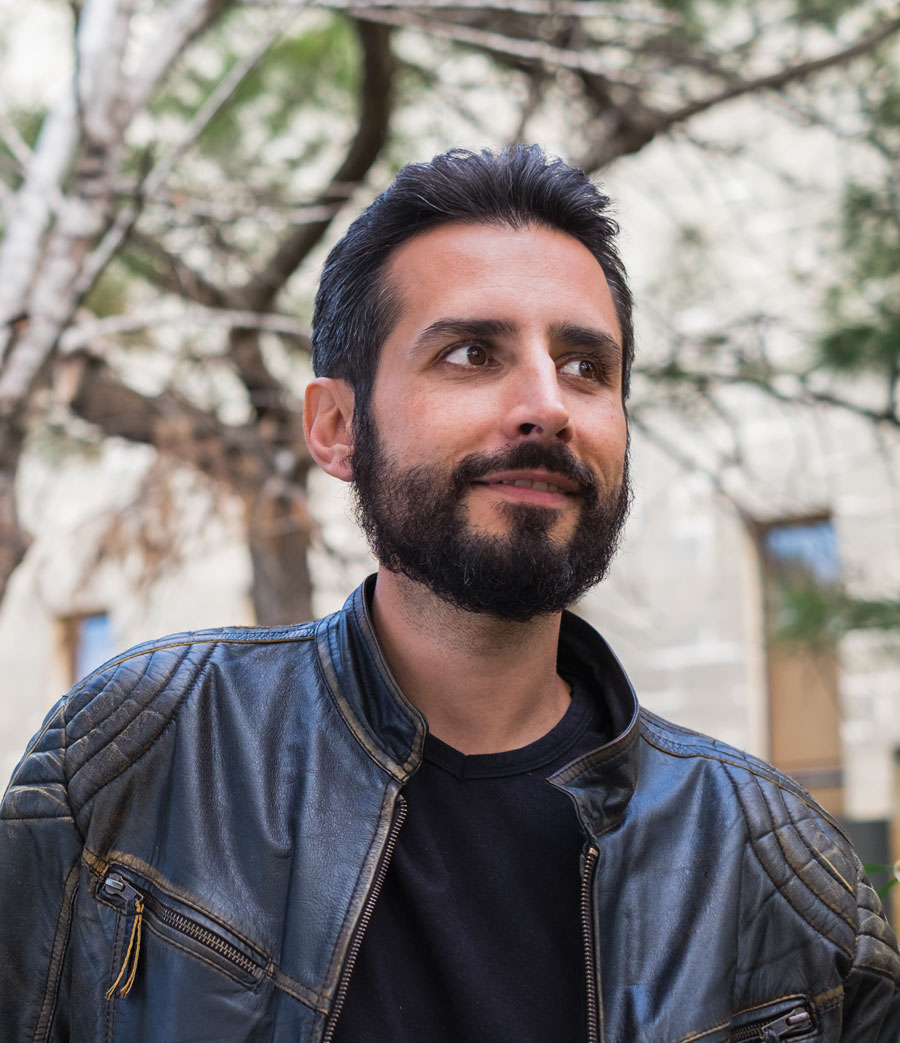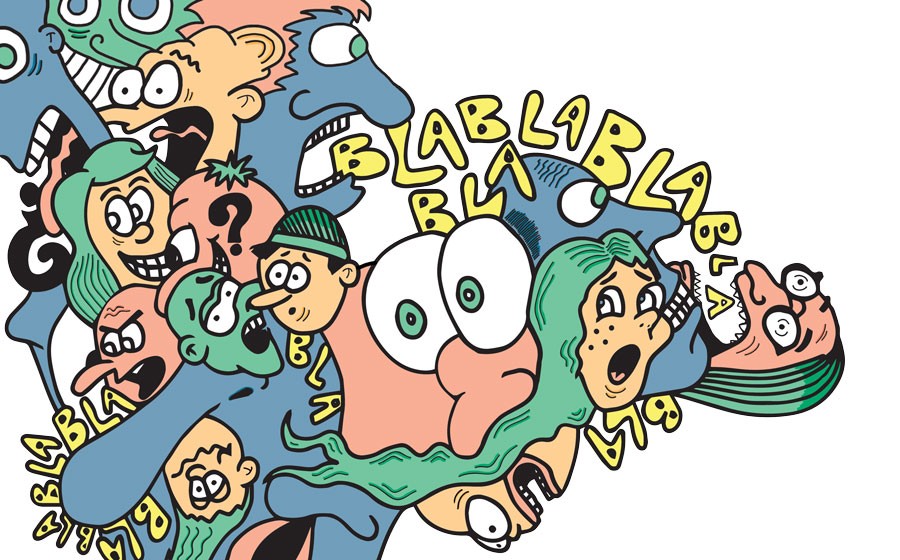A spin-out from the University of Malta’s Institute of Digital Games is working on artificial intelligence-run game testing software. The engine would run thousands of low-level testing rounds before humans engage in high-level testing of a game prior to market release. Modl.ai co-founder Georgios N. Yannakakis tells THINK how his team aspires to change the game.
Continue readingPlaying Maltese History
When we study history, we might think of larger-than-life figures such as William the Conqueror and Napoleon or of crucial dates such as the French Revolution of 1789 or the Fall of the Berlin Wall in 1989. But it is also possible to look at history through the lens of microhistory and socio-economic processes, focusing on the daily lives of the people or communities that lived through the time. For the team behind the project Playing Maltese History, this lens was the starting point for their video game, Valletta: Streets of History.
Continue readingWe Be (Game) Jammin’ – The Global Game Jam 2023
For many of us, video games are a fun way to spend an evening. However, for some, video games are an integral part of our lives. When we’re not playing them, we’re reading about them, trawling through forums and ‘let’s plays’, and making them. The Global Game Jam brings together like-minded people for an intense three days of developing a game from scratch.
Continue readingGames, TAMED, and AI Empathy
TAMED is a University of Malta project developing ‘affective computing’ in video games, which would enable them to interpret human emotions. Jonathan Firbank goes into detail with Dr Konstantinos Makantasis.
Continue readingWe’re exploring Here!
If you had a rich malleable canvas that could flip rules on their heads and expose truths we take for granted, wouldn’t you use it? Jasper Schellekens writes about the games delving deep into some of our most challenging philosophical questions.
The famous Chinese philosopher Confucius once said, ‘I hear and I forget. I see and I remember. I do and I understand.’ Confucius would have likely been a miserable mystic in modern mainstream education which demands that students sit and listen to teachers. But it’s not all bad. Technological advancements have brought us something Confucius could never have dreamed of: digital worlds.
 A digital world offers interaction within the boundaries of a created environment. It allows you to do things, even if the ‘thing’ amounts to little more than pressing a key. Research at the Institute of Digital Games (IDG) focuses on developing a deeper understanding of how these concepts can be used to teach through doing by looking at people interact with gameworlds, studying how games can impact them (Issue 24), and designing games that do exactly that.
A digital world offers interaction within the boundaries of a created environment. It allows you to do things, even if the ‘thing’ amounts to little more than pressing a key. Research at the Institute of Digital Games (IDG) focuses on developing a deeper understanding of how these concepts can be used to teach through doing by looking at people interact with gameworlds, studying how games can impact them (Issue 24), and designing games that do exactly that.
Doing it digital
Two millennia later, John Dewey, one of the most prominent American scholars of the 20th century, proposed an educational reform that focused on learning through doing and reflection instead of the ‘factory model’ that was the norm. Dewey’s idea was embraced, and has become a pedagogical tool in many classrooms, now known as experiential learning.
Let’s not pretend that Confucius was thousands of years ahead of his time—after all, apprenticeships have always been an extremely common form of learning. But what if we were to transplant this method of experimentation, trial and error, into a digital world?
It would allow us to do so much! And we’re talking about more than figuring out how to plug in to Assassin’s Creed’s tesseract or getting the hang of swinging through New York City as Spiderman. While these are valuable skills you don’t want to ignore, what we’re really interested in here are virtual laboratories, space simulations, and interactive thought experiments.
Games make an ideal vehicle for experiential learning precisely because they provide a safe and relatively inexpensive digital world for students to learn from.
Think of the value of a flight simulator to train pilots. The IDG applied the same idea to create a virtual chemistry lab for the Envisage Project. They threw in the pedagogical power tools of fun and competition to create what’s known as serious games.
Serious games are at the heart of many of the IDG’s research projects. eCrisis uses games for social inclusion and teaching empathy. iLearn facilitates the learning process for children with dyslexia and Curio is developing a teaching toolkit to foster curiosity. However, the persuasive power of videogames stretches further than we might think.
In a videogame world, players take intentional actions based on the rules set by the creators. These ‘rules’ are also referred to as ‘game mechanisms’. Through these rules, and experiential learning, players can learn to think in a certain, often conventional, way.
Which brings us to HERE.

Prof. Stefano Gualeni is fond of using games to criticise conventions: in Necessary Evil a player takes on the role of an NPC (Non Player Character) monster, in Something Something Soup Something the definition of soup is questioned, while in HERE Gualeni breaks down what ‘here’ means in a digital world.
What’s Here?
 HERE sees the player explore the philosophical concept of ‘indexicality’, the idea that meanings depend on the context in which they occur. A fitting example is the extended index finger, which means different things depending on where it is placed and what movement it makes. Point one way or another to indicate direction, place over the lips to request silence, or shake it from side to side to deny or scold.
HERE sees the player explore the philosophical concept of ‘indexicality’, the idea that meanings depend on the context in which they occur. A fitting example is the extended index finger, which means different things depending on where it is placed and what movement it makes. Point one way or another to indicate direction, place over the lips to request silence, or shake it from side to side to deny or scold.
The game explores the word ‘here’ in the digital world. It sheds light on how much we take for granted, and how a lot of concepts are not as straightforward as we think.
HERE you play as ‘Wessel the Adventurer’, a cat of acute perception that is sent on a quest by a wizard to find magic symbols and open an enchanted cave. Playing on the tropes of role-playing games, the expectations of the adventurer are thus framed in a conventional manner, but not everything is as it seems.
By subverting players’ expectations of role-playing games, they will have the opportunity to discover what they have been (perhaps unwittingly) taught. They will be confronted with a puzzle involving the many versions of ‘here’ that can co-exist in a digital world. Among their prizes is Gualeni himself performing a philosophical rap.
Explorable Explanations
Experiential learning isn’t the only way to learn, but video games, with their interactivity and ability to manipulate the gameworld’s rules with ease, offer a ripe environment for it. The digital realm adds a very malleable layer of possibility for learning through doing and interacting with philosophical concepts. HERE is not alone in this approach.
Words often fall short of the concepts they are trying to convey. How do you explain why people trust each other when there are so many opportunities to betray that trust? Telling people they have cognitive biases is not as effective as showing them acting on those biases.
Explorable Explanations is a collection of games curated by award-winning game developer Nicky Case that dig into these concepts through play. The Evolution of Trust is one of them, breaking down the complex psychological and social phenomena contributing to the seemingly simple concept of trust in society. Adventures in Cognitive Biases is able to show us how we are biased even when we don’t think we are. HERE delves into our understanding of language and the world around us, showing us (instead of telling us) that learning doesn’t have to be boring. Now go learn something and play HERE.
To try the game yourself visit www.here.gua-le-ni.com
Do you think this is a game?
Picture an item of furniture. Was it a table, a chair, or a wardrobe? Our ideas of furniture are not oriented around what it does, or even its essential nature, but rather around all the common examples we see around us and the cognitive web of interrelations that builds in our head.
This fictional furniture is just an analogy. Supervised by Prof. Gordon Calleja, I investigated how language affects our preconceptions of what games are and what they should do. Our ideas about games are not related to their potential or their openness but to constructions in our mind.

My research was mostly within the philosophy of language. I explored how our ideas of what a thing is are not grounded in what it does or is, but around a cognitive image, created by what we often see and label it as.
My research was mostly theoretical. It showed how other game researchers might have been misguided or had counter-intuitive results. Their research tried to define what games are and did not realise that this went against how we used the word ‘games’, i.e. as a container for all the things we collectively consider game-like.
That said, I also had the opportunity to test-drive this work in a game I am currently developing with Dr Stefano Gualeni, which analyses what the word soup means.
Apart from answering the long-standing question of what a game actually is, this research also shows how games would benefit from being more inclusive and experimental. By creating these types of games, we can attract people whose cognitive model of a game is different from the norm. Similarly, by designing games that are more open, we can stretch the web of interconnections in people’s minds, potentially showing how games are more akin to life than we realise.
Are you ready to play?
This research was carried out as part of the Masters in Digital Games, carried out by the Institute of Digital Games at the University of Malta.
What Do You Need to Setup An Indie Gaming Community?
Joseph Aldape met indie game developer Rami Ismail to chat about indie gaming communities.
Malta Global Game Jam
 Indie games are seemingly unstoppable. As mainstream blockbuster AAA games stutter, new niches are opening up with nearly half of gamers being female and mobile revenue increasing rapidly. In Malta, an important piece in the indie game developer puzzle is the Malta Global Game Jam, which brings coders, designers, artists, writers, and other creatives together to create a game from scratch in just 48 hours.
Indie games are seemingly unstoppable. As mainstream blockbuster AAA games stutter, new niches are opening up with nearly half of gamers being female and mobile revenue increasing rapidly. In Malta, an important piece in the indie game developer puzzle is the Malta Global Game Jam, which brings coders, designers, artists, writers, and other creatives together to create a game from scratch in just 48 hours.
Run in Malta by the Institute of Digital Games since 2013, the yearly event has grown considerably since its inception, pulling an international crowd from all over Europe. The January event this year included London-based games and pop-culture writer Philippa Warr and Milan-based indie design duo We are Müesli.
After keynotes and workshops to hone participants’ skills, 14 different games were created. The worldwide theme was ‘ritual’. In third place was the create-your-own-god game, Godowbows, and the self-explanatory non-fun game, IKEA supply assistant. In second place the beautifully designed The Passage immersed players into an ancient temple’s rite of passage. Hashtag Master Race won the local event with a game about angels and demons. Internationally over 28,000 people participated.
Apart from a fun weekend, the event is an opportunity for one to practice and learn skills, to build networks and, in a few cases, build promising new IP (Intellectual Property). Participants form a small indie development team every year. Back in the 2013 Malta Global Games Jam, the game And Then We Held Hands saw success and as it was distributed internationally following a $60,000 Kickstarter campaign. The experience can be used to help those already in the industry, or for those wishing to enter the industry, gain confidence to make more indie games or for them to join a big company with proven experience.
Intense events like this play a vital role in the building of a local game development scene that can soon see Malta join its international peers in producing top-notch, international and lucrative games.

